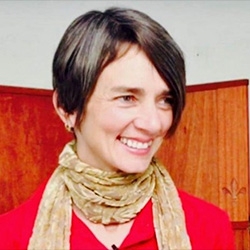
NVC Resources on Exercises and Practices
-
Robert's passion was in the spirituality of the Nonviolent Communication (NVC) process. He saw NVC both as a process that helps people connect more authentically with themselves and others, and as a spiritual practice and way of living. The worldwide NVC community mourned when Robert died in 2021. He left behind a legacy of work that emerged from a lifetime of inquiry into the intersection between spirituality and human communication.
-
We can use anger as an important signal to let us know that we perceive a threat to a universal need or value, directing our attention to something so that we can take effective action, and avoid harmful thought patterns. For example, instead of dwelling on a "should," focus on addressing unmet needs through boundaries and effective communication.
-
"Falling out of love" is a misleading concept that can lead to feelings of helplessness in relationships. The initial intense phase of love gradually gives way to the need for intentional effort and communication. Unrealistic relationship expectations can erode connection, causing the perception of falling out of love. To address this, we can ask key questions and seek clarity to attend to unmet needs and maintain a healthy connection.
-
Judgment is an attempt to protect from hopelessness or insecurity, at high cost. Instead, check in with fear, grief, or hurt. Then wonder what needs are at stake for everyone. This makes space for grief instead of anger, for negotiation rather than control, and for "calling in" rather than excluding. Wonder: “For whom would this be life-serving or not?”, “What strategies would care for all needs?” or, “What can I contribute now?”
-
When a person of color (A.K.A. a person from the Global Majority, or GM) tells a marginalization story that triggers a defensive response from a white participant in a group, to foster awareness and healing, leaders can address the white person's distress with empathy, highlighting the common dynamic of prioritizing white pain. From there, leaders can offer GM participants opportunity to share their experience and make requests of the group.
-
In this snippet from Duke Duchscherer's course, Restorative Dialogues: Transforming Conflict, Building Community Resilience, he shares a structured approach for conflict resolution or communication facilitation. It involves a facilitator guiding a conversation between two parties in conflict. The process begins with one party expressing their perspective while the other listens actively. The facilitator then prompts the listener to paraphrase what they heard, ensuring mutual understanding. This cycle continues until both parties feel heard. Subsequently, the facilitator encourages them to discuss potential solutions collaboratively. Once both sides are satisfied, the session concludes, with participants potentially swapping roles for further practice. The aim is for everyone involved to gain experience in effective communication and conflict resolution.
-
How can you remember to use the skills and consciousness of NVC in the heat of the moment?
Jim and Jori Manske will show you how in these recordings from their 2018 course!
They teach that when and how you address the conflicts that emerge in your everyday life matters! By slowing down and considering the state of your resources before engaging in a conflict, you increase the likelihood of discovering a solution that dissolves separateness and enhances the connection and compassion you long for.
-
Distinguishing between needs and strategies to meet needs is crucial for solving conflict. For example, the need for peace can be met through various strategies beyond solitude or gratitude. Similarly, sex is a strategy. Sexual expression is the need behind it, and can be met in various ways to meet that need without having sex itself. Such flexibility can foster creativity and deeper connection, enhancing relationships.
-
Iris Bawidamann explains how needs, like appreciation, can easily turn into demands or self-blame when approached from a place of lack or expectation. This practice is based on the work of Living Compassion, shared by Robert Gonzales, focusing on the beauty of needs and the living energy of needs
-
David explores how movement helps you hold your center when navigating challenging conversations. Example: Move to Wind ~ to calm your system; Move to Ground ~ to notice the ground on which you stand; and Step to Shikaku ~ step behind to practice empathic listening. Listen Now.











